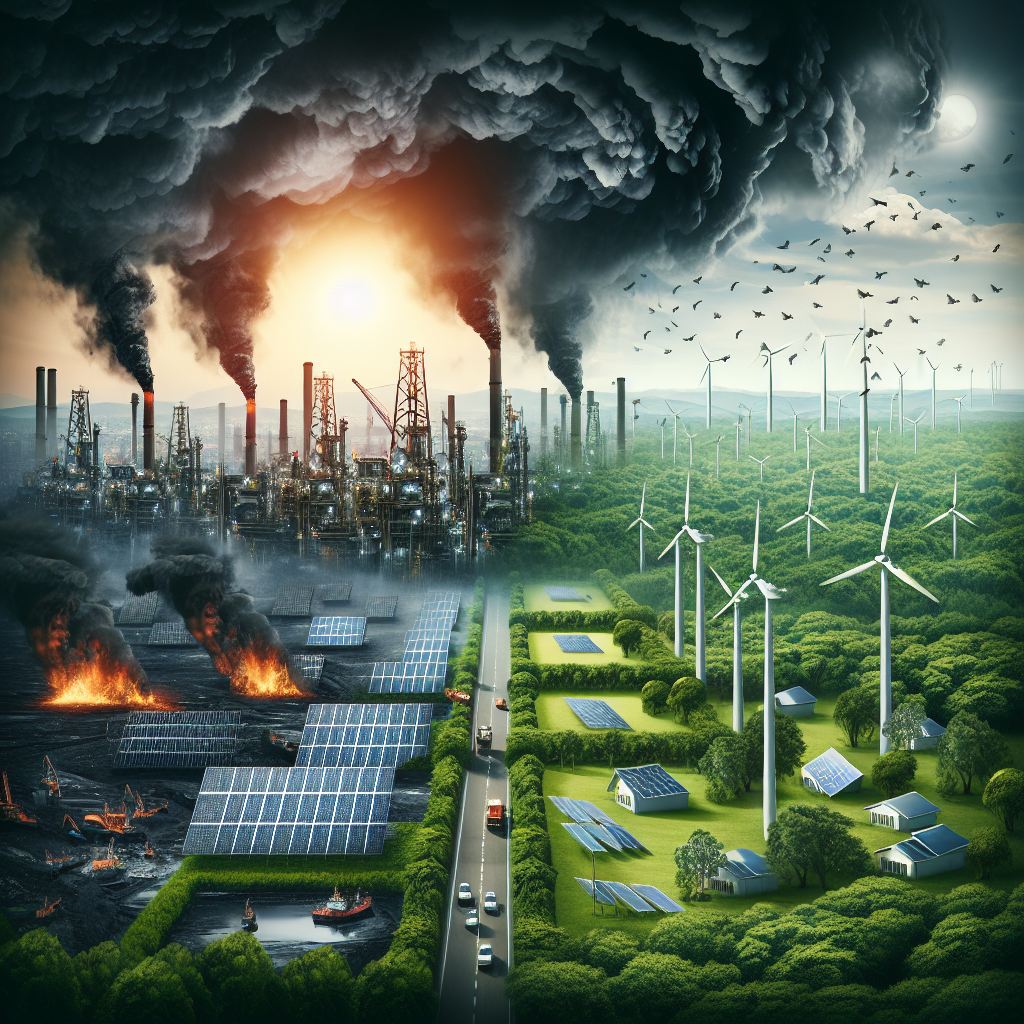The Politics of Renewable Energy: Navigating the Transition from Fossil Fuels
The transition from fossil fuels to renewable energy sources is perhaps one of the most significant and complex challenges that our global society faces today. It’s a transition that not only requires technological innovation and economic investment but also a profound shift in political will, policy-making, and societal support. The politics of renewable energy are intricate, influenced by global dynamics, national interests, local communities, and powerful industries that have much to lose or gain.
Understanding the Political Landscape
The political landscape surrounding renewable energy is a battleground of competing interests and ideologies. On one side, there are powerful fossil fuel industries, with deep pockets and political influence, fighting to maintain their dominance in the energy sector. These industries have long been entrenched within the political systems of many countries, benefiting from subsidies, favorable legislation, and regulatory frameworks that support their interests.
On the other side, there are the proponents of renewable energy — a diverse coalition of environmental NGOs, clean energy companies, progressive politicians, and a concerned public. These stakeholders advocate for policies that support the development and adoption of renewable energy technologies, such as wind, solar, and hydroelectric power. Their arguments are based not only on the environmental benefits of reducing greenhouse gas emissions but also on the economic opportunities that the renewable energy sector presents.
The Role of Government Policy
Government policy plays a crucial role in either facilitating or hindering the transition to renewable energy. Policies such as renewable energy targets, subsidies for clean energy projects, carbon pricing mechanisms, and regulations that phase out fossil fuels can accelerate the adoption of renewable energy. Conversely, subsidies for fossil fuels, lack of support for clean energy research and development, and regulatory barriers can significantly slow down the transition.
In recent years, several countries have made ambitious commitments to renewable energy, driven by both international agreements like the Paris Climate Accord and domestic pressures to address climate change and air pollution. However, progress is uneven, and in many regions, political support for renewable energy is still overshadowed by the interests of the fossil fuel lobby.
The International Dimension
The politics of renewable energy also have a significant international dimension. Developing countries, many of which are heavily impacted by climate change, are seeking support to leapfrog to renewable energy technologies without having to rely heavily on fossil fuels. However, their efforts are often constrained by financial and technological barriers, making international investment and technology transfer critical.
Moreover, as countries like China and the USA jockey for leadership in the renewable energy sector, geopolitical tensions can arise. The global race to dominate the clean energy market of the future is not just about environmental concerns but also about economic and strategic power.
Navigating the Transition
Navigating the transition from fossil fuels to renewable energy is a multifaceted challenge that requires a coordinated approach across different levels of government and society. It involves making difficult decisions that balance short-term costs against long-term benefits and managing the economic and social impacts on communities that are dependent on the fossil fuel industry.
One key strategy is to invest in the education, training, and re-skilling of workers to create a workforce that can thrive in the renewable energy sector. Another is to ensure that the benefits of renewable energy, such as cleaner air and lower energy costs, are widely shared, helping to build broad public support for the transition.
The Role of Innovation and Technology
Technological innovation is critical to overcoming some of the obstacles to renewable energy adoption, such as energy storage and grid integration. Continued investment in research and development can help reduce the costs of renewable energy technologies, making them more competitive with fossil fuels.
Moreover, digital technologies such as smart grids and advanced energy management systems can play a crucial role in making the energy system more flexible and efficient, enabling a higher penetration of renewable energy sources.
Challenges Ahead
Despite the progress made in recent years, the transition to renewable energy faces significant challenges. These include political resistance from fossil fuel interests, the technical and economic challenges of integrating renewable energy into the existing energy system, and the need for significant financial investment in clean energy infrastructure.
FAQs
Q: Why is the transition to renewable energy important?
A: The transition to renewable energy is essential for mitigating climate change, reducing air pollution, and creating sustainable economic opportunities.
Q: What are the main sources of renewable energy?
A: The main sources of renewable energy include solar power, wind power, hydroelectric power, biomass, and geothermal energy.
Q: How do government policies influence the adoption of renewable energy?
A: Government policies can significantly influence the adoption of renewable energy through mechanisms such as subsidies, tax incentives, renewable energy targets, and regulations that support clean energy development and discourage fossil fuel use.
Q: What are the main barriers to the transition to renewable energy?
A: The main barriers include political resistance from the fossil fuel industry, financial and technological challenges, and the need for substantial investment in clean energy infrastructure and workforce re-skilling.
Q: Can renewable energy completely replace fossil fuels?
A: While it is technically possible for renewable energy to meet a large proportion of the world’s energy needs, the complete replacement of fossil fuels will require significant technological advancements, economic investment, and political will to overcome the current barriers.
Navigating the politics of renewable energy is a complex but necessary task for achieving a sustainable and equitable energy future. As the world continues to grapple with the impacts of climate change, the transition from fossil fuels to renewable energy sources emerges not just as an environmental imperative but as an economic and social opportunity that we cannot afford to miss.

